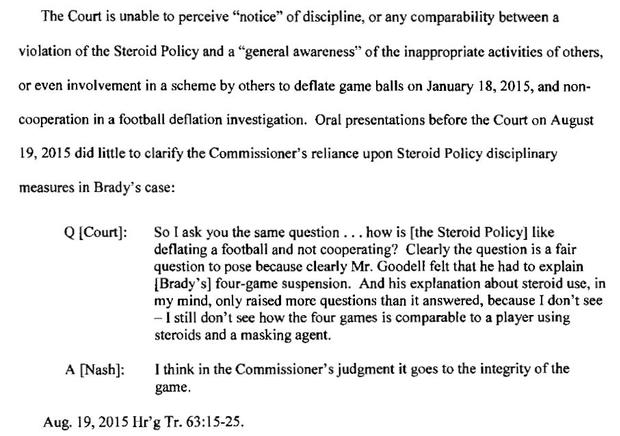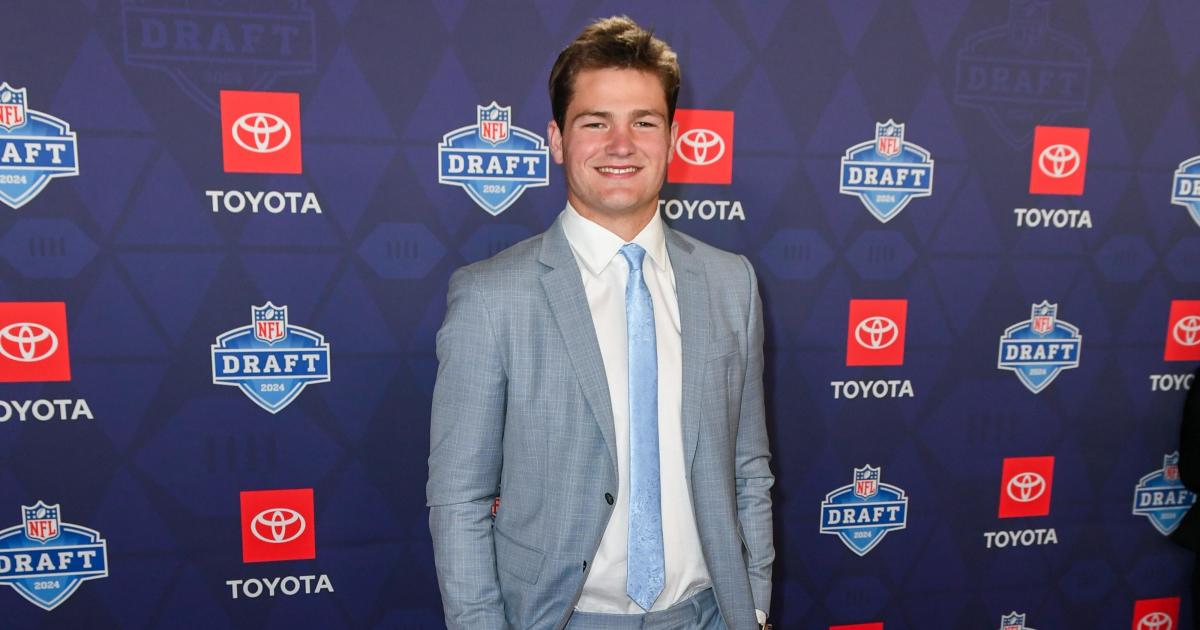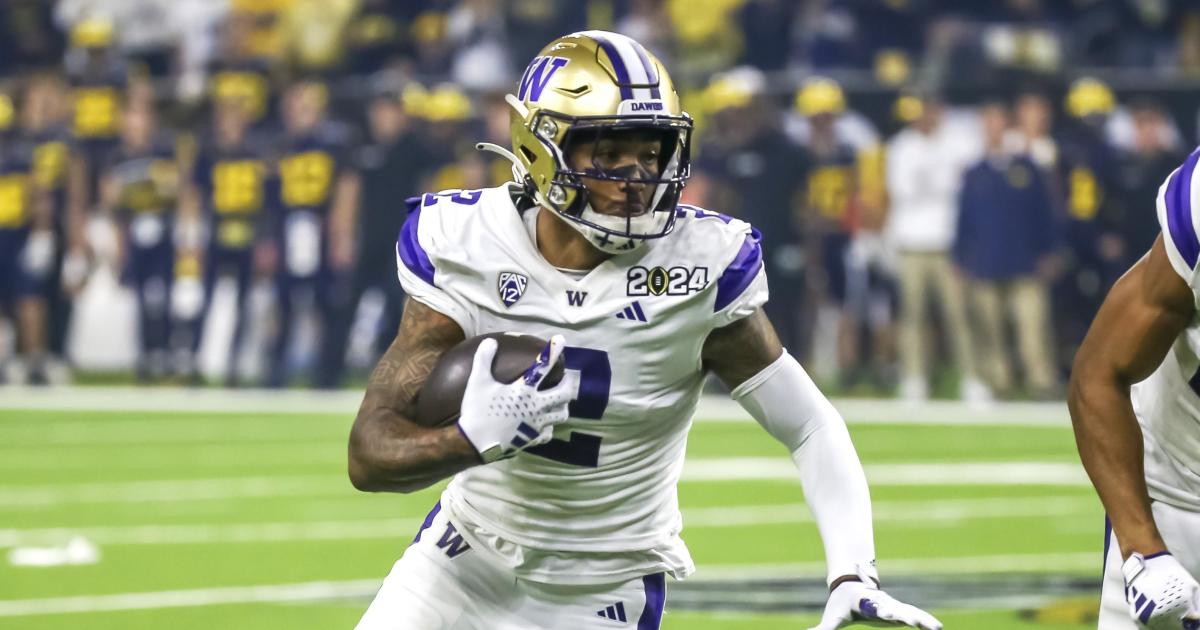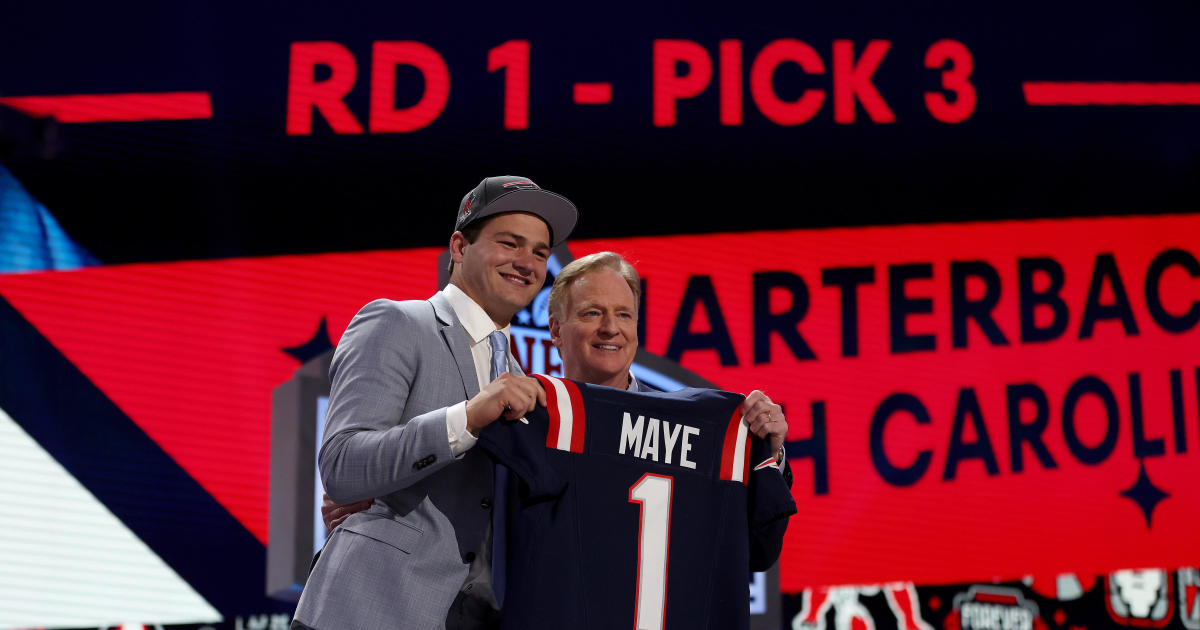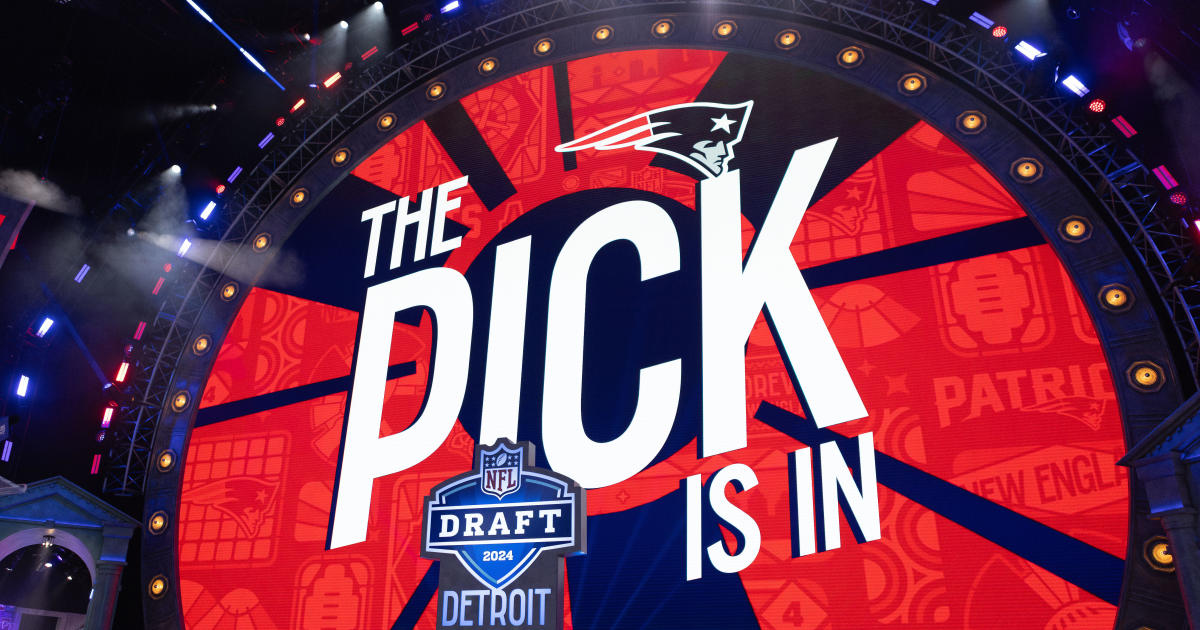Tom Brady Defeats NFL; Judge Berman Rules To Vacate Four-Game Suspension
BOSTON (CBS) -- Tom Brady has beaten Roger Goodell in federal court, and the quarterback will be under center for the New England Patriots on opening night.
Read: Judge Richard Berman's Decision
U.S. District Judge Richard Berman issued his decision, ruling to vacate the four-game suspension issued to Brady for his alleged general awareness of Patriots employees charged by the NFL with letting air out of footballs for the AFC Championship Game on Jan. 18.
"Based upon the foregoing and applicable legal authorities, the Court hereby denies the Management Council's motion to confirm the Award and grants the Players Association's motion to vacate the Award, thereby vacating the four-game suspension of Tom Brady, effective immediately," Berman wrote.
Berman noted that though the court system must give high deference to arbitrators' decisions, judges can rule to overturn decisions "where the arbitrators were guilty of ... refusing to hear evidence pertinent and material to the controversy" and also "where there was evident partiality."
The crux of Berman's ruling came on pages 20 and 21:
The Court is fully aware of the deference afforded to arbitral decisions, but, nevertheless, concludes that the Award should be vacated. The Award is premised upon several significant legal deficiencies, including (A) inadequate notice to Brady of both his potential discipline (four-game suspension) and his alleged misconduct; (B) denial of the opportunity for Brady to examine one of two lead investigators, namely NFL Executive Vice President and General Counsel Jeff Pash; and (C) denial of equal access to investigative files, including witness interview notes.
One of the questions raised by Berman during the public meetings was just how much of the four-game suspension was based on the alleged knowledge of ball deflation and how much was based on non-cooperation. Berman never got an answer from the NFL that satisfied his curiosity.
"During the August 19, 2015 oral argument, it became apparent that no specific determination was made either in the [Troy] Vincent Disciplinary Decision Letter or the Goodell Award as to what portion of Brady's discipline was attributable to alleged ball tampering and what discipline was attributable to non-cooperation (and, for that matter, what discipline was attributable to the destruction of Brady's phone)," Berman wrote, while including the transcript of those proceedings.
Berman also took issue with the NFL equating Brady's alleged "general awareness" to a player using steroids, and he said so in his ruling.
"The Court finds that the NFL's collectively bargained for 'Policy on Anabolic Steroids and Related Substances' ('Steroid Policy') is sui generis," Berman wrote. "It cannot, as a matter of law, serve as adequate notice of discipline to Brady. It also cannot reasonably be used as a comparator for Brady's four-game suspension for alleged ball deflation by others in the first half of the AFC Championship Game and for non-cooperation in the ensuing Investigation. The Steroid Policy is incorporated into the 2014 Player Policies, which sets forth in great detail 'testing procedures,' 'procedures in response to positive tests or other evaluation,' 'suspension and related discipline,' 'appeal right,' 'burdens and standards of proof,' and 'discovery,' none of which has anything to do with Brady's conduct and/or his discipline."
Berman continued:
The Award offers no scientific, empirical, or historical evidence of any comparability between Brady's alleged offense and steroid use. Often, steroid use has to do with critical issues of health, injury, addiction, and peer pressure, among other factors. See Steroid Policy at 1-2 (listing several factors related to the use of "Prohibited Substances," including "a number of physiological, psychological, orthopedic, reproductive, and other serious health problems, [such as] heart disease, liver cancer, musculoskeletal growth defects, strokes, and infertility"). None of these factors is (remotely) present here.
The Court finds that no player alleged or found to have had a general awareness of the inappropriate ball deflation activities of others or who allegedly schemed with others to let air out of footballs in a championship game and also had not cooperated in an ensuing investigation, reasonably could be on notice that their discipline would (or should) be the same as applied to a player who violated the NFL Policy on Anabolic Steroids and Related Substances. Brady had no such notice.
At the center of many debates surrounding Brady has been his cell phone -- namely his refusal to turn over his phone to investigator Ted Wells. But Berman quoted Wells as saying that he never told Brady that there would be disciplinary consequences for refusing to voluntarily turn over his phone.
Berman cited two cases on why a four-game suspension was not a reasonable punishment for not turning over the phone: "'Because there was no notice of a four-game suspension in the circumstances presented here, Commissioner Goodell may be said to have "dispense[ d] his own brand of industrial justice.' 187 Concourse Assocs., 399 F.3d at 527 (citation omitted). 'When the arbitrator's words manifest an infidelity to this obligation, courts have no choice but to refuse enforcement of the award.' United Steelworkers of Am. v. Enter. Wheel & Car Com., 80S. Ct. 1358, 1361 (1960)."
Berman also cited former NFL commissioner Paul Tagliabue's ruling on the Saints from 2012, when he said that no player has ever been suspended for non-cooperation.
Berman also noted that the Wells report deemed Brady to only have "general awareness" of others' deflating footballs, but Goodell wrote in his letter to uphold the ruling after arbitration that Brady was being punished "for having 'approved of, consented to, and provided inducements in support of 'a scheme to tamper with game balls after they had been approved by the game officials for use in the AFC Championship Game.'"
The fact that "general awareness" rose to "involvement in a scheme" did not sit well with Berman.
As expected, recent court rulings to overturn suspensions of Adrian Peterson and Ray Rice came to light in Berman's ruling.
"NFL arbitral precedent confirms that because Brady did not have notice of the Competitive Integrity Policy, that Policy could not serve as the basis for disciplinary action against him. Judge Jones (in Ray Rice) and U.S. District Judge David S. Doty (in NFLPA v. NFL (Adrian Petersion) ("Adrian Peterson") each held that the increased NFL penalties set forth in a 'new' policy for domestic violence [New NFL Personal Conduct Policy (Aug. 2014)] could not be applied to Rice and Peterson, respectively, because these players (only) had notice of discipline under the 2007 Personal Conduct Policy," Berman wrote.
Also, Berman said that the NFL's refusal to allow Brady's lawyers to question co-lead investigator Jeff Pash played a major role in determining Brady's process to have been unfair.
"NFL precedent demonstrates that, in Article 46 arbitration appeals, players must be afforded the opportunity to confront their investigators," Berman wrote.
"Given Mr. Pash's very senior position in the NFL, his role as Executive Vice President and General Counsel, and his designation as co-lead investigator with Ted Wells, it is logical that he would have valuable insight into the course and outcome of the Investigation and into the drafting and content of the Wells Report," Berman added. "It is also problematic to the Court that there was no specification by Goodell as to the ways Pash's testimony would have been 'cumulative.' The Management Council does not deny that Mr. Pash provided edits to the Wells Report, in advance of its release."
Berman also wrote: "Denied the opportunity to examine Pash at the arbitral hearing, Brady was prejudiced. He was foreclosed from exploring, among other things, whether the Pash/Wells Investigation was truly 'independent,' and how and why the NFL' s General Counsel came to edit a supposedly independent investigation report. ... Brady was also prejudiced because there was no other witness, apart from Pash, who was as 'competent to address the substantive core of the claim.' ... As co-lead investigator and senior executive with the NFL, Pash was in the best position to testify about the NFL 's degree of involvement in, and potential shaping of, a heralded 'independent' Investigation."
In fact, Berman wrote that the act of denying Brady's side the chance to question Pash during the arbitration hearing was reason enough to vacate the suspension.
"Commissioner Goodell's refusal to hear such evidence warrants vacatur of the Award under 9 U.S.C. § 10(a)(3)," Berman declared.
The NFL's refusal to share investigative notes with Brady's lawyers served as a mark against the league, as well.
"The Court notes that the Paul, Weiss role in this case seems to have 'changed' from 'independent' investigators to NFL 's retained counsel at the arbitral hearing," Berman wrote. "Among other things, this change in roles may have afforded Goodell (and Pash) greater access to valuable impressions, insights, and other investigative information which was not available to Brady."
The league initially announced the suspension of Brady -- along with the heavy punishments issued to the Patriots -- on May 11, five days after the public release of the report filed by Ted Wells. Brady promptly appealed the suspension, but Goodell declared himself to be the arbitrator for that appeal hearing.
After the 10-hour appeal hearing at NFL headquarters on June 23, Goodell waited more than a full month to announce that he had decided to uphold his own decision. At that point, the NFL filed a preemptive lawsuit in New York, while the NFLPA filed suit in Minnesota. The case eventually ended up in New York, in Judge Berman's courtroom.
The judge went hard after the NFL in the public meetings between the two sides, seemingly not believing the case against Brady was all that strong. Berman questioned the facts in the Wells report as well as the decision to suspend a player for four games despite there being no similar cases in the past.
Goodell announced shortly after the ruling that the NFL will appeal Judge Berman's decision.
In the meanwhile, Brady will be suiting up for the Patriots, beginning Sept. 10 at home against the Pittsburgh Steelers, with the Patriots raising the banner at Gillette Stadium for winning Super Bowl XLIX.
Berman concluded his ruling succinctly: "For the reasons stated herein, the Management Council's motion to confirm the arbitration award is denied and the Players Association's motion to vacate the arbitration award is granted. Brady's four-game suspension is vacated, effective immediately. The Clerk is respectfully requested to close cases 15 Civ. 5916 and 15 Civ. 5982."
